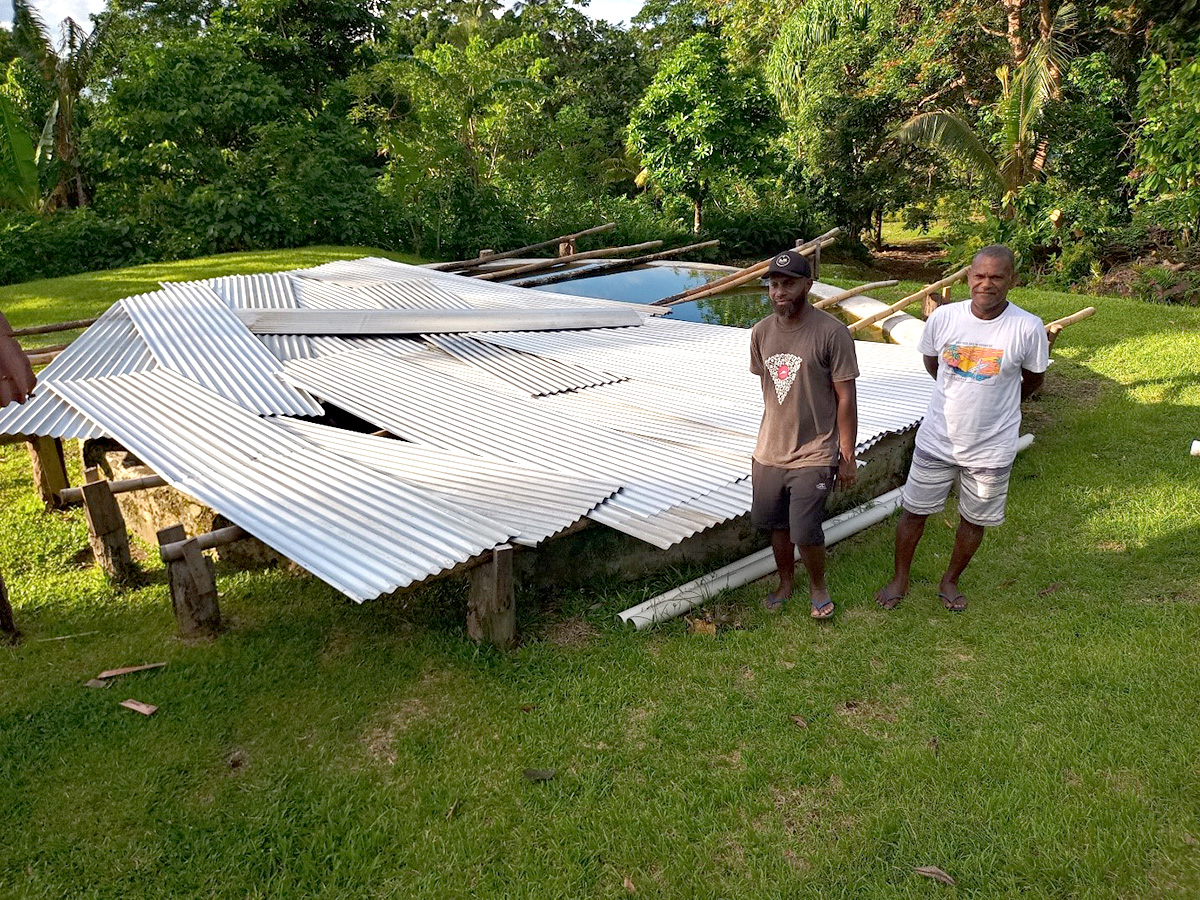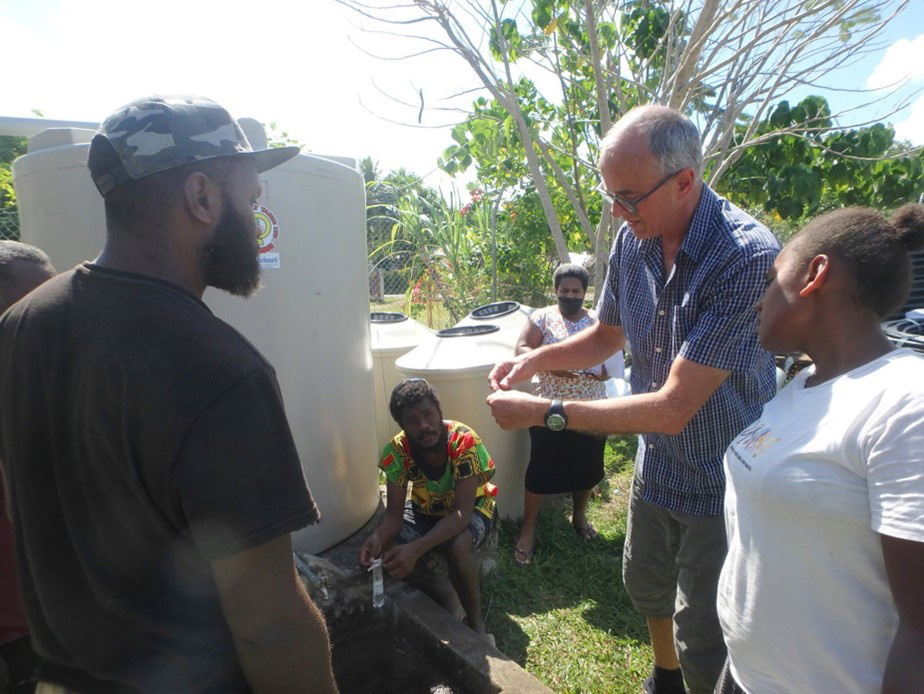Coordination and volunteers key to getting things done in Vanuatu
Reliance on coordination and volunteers is the key to responding to non-stop disasters in Vanuatu.
Edgel Aru is a local volunteer who helps AID’s partner, ACOM Vanuatu, conduct disaster risk reduction trainings in West Ambae. That’s Edgel on the right in the first photo beside a water supply system that ACOM helped locals to rehabilitate around five years ago, and which he and other locals have been using and maintaining ever since.
Edgel is just one of many Vanuatu locals with whom ACOM is coordinating. In fact, in response to COVID-19 and a spate of recent cyclones, ACOM has greatly expanded its coordination with local helpers.
Many local development organisations coordinate with various levels of government and with local volunteers, but still rely mainly on their own on-the-ground staff. Very few organisations rely on local volunteers as extensively as ACOM Vanuatu, where local helpers implement most of the program and ACOM Vanuatu’s team of two staff play largely a support role. In this sense, ACOM is providing leadership in localisation of development. Here are more examples.
ACOM taught volunteers in Penama and Torba Provinces how to make ventilation improved pit toilets with “seat-risers” (raised structures enabling the user to sit rather than squat). The volunteers subsequently installed these in many households across Penama and Torba Provinces.
Community-based volunteers have also been helping ACOM with assessing people’s needs and distributing relief supplies after disasters strike, and with collecting data on how many people have participated in program trainings and are using newly installed water supply systems.
In South Ambae, ACOM worked with the government’s Area Administrator to conduct needs assessments in communities following two cyclones in February 2023 and October 2023. ACOM originally planned to transport food relief to Ambae from nearby Santo Island but the Area Administrator persuaded ACOM that it would be better value to bring in fencing wire! The wire could be given to those farmers whose gardens were still intact so they could provide free food to those affected by the cyclones.
ACOM subsequently coordinated with another Area Administrator in Torba province to assist with a similar approach in that area.
ACOM also coordinates closely with other local government departments. ACOM is buying seedlings for its Cyclone Lola response in Torba Province through the provincial Department of Agriculture, which purchases the seeds from local farmers. And ACOM recently contracted the Women’s Affairs office in Torba Province to run a psycho-social training for those affected by Cyclone Lola.
ACOM trains better-educated community members to become volunteer adult literacy teachers. ACOM even has volunteers, such as Esline Mabon on Pentecost Island, who assist with identifying volunteer teachers.
Late last year, ACOM drew on international helpers. Partially supported by the Australian Government’s Australian Volunteers International (AVI) scheme, Peter and Jane Newhouse travelled from Bunbury in Western Australia to Vanuatu to spend August-October 2023 with ACOM. Peter was able to pass on his technical experience in water and sanitation to ACOM volunteers, who are subsequently deploying to many islands of Vanuatu to install water supply systems and latrines. Peter and Jane were also able to provide recommendations in disaster risk reduction and training in the use of Kobo Toolbox data collection software to help with monitoring and future planning. Jane provided invaluable support for Peter including being a sounding board for the development of the training modules, taking photos and visiting communities with ACOM staff and volunteers.
AID congratulates ACOM on its initiative in drawing on such a wide network of volunteers and implementing so many disaster responses with only two project staff. We acknowledge the important work carried out by numerous volunteers in Vanuatu and the important financial contributions made by AID’s generous supporters and by the Australian Aid program in Australia.
We have committed to contribute $1 for every $5 we receive from the Australian Government. This means that every donation you make to this project will be combined with funding from the Australian Government to reach more people. Your donation will allow us to extend this program.
–
AID wishes to thank all who support this project through prayer and/or donations.

Edgel (right) with ACOM staff member, Bradley Tamata, standing next to the full reservoir. © ACOM Vanuatu. Used with permission.
